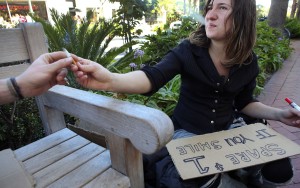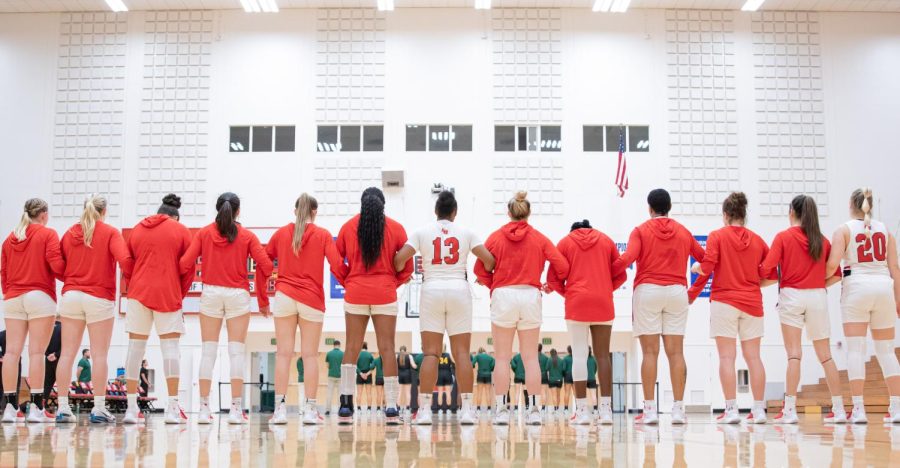
downtown district.
The City of Hayward has been working this past fall to garner community support to stamp out panhandling in downtown Hayward to help clear a way for business and economic growth through a project called “Take Profit out of Panhandling.”
The Hayward Police Department and city officials claim one of the major complaints in downtown Hayward last summer was “aggressive panhandling” that frightened citizens and weighed on merchant’s efforts to attract business.
“We are working to decrease and eliminate panhandling. We have been working with the chamber, police department, Mark Salinas, as well as with people on the street,” said Sara Lamnin, planning commissioner at the City of Hayward.
Lamnin emphasizes that the success has been limited to the library and Peet’s Coffee but a re-emergence of panhandling at Lucky and other businesses near City Hall has been a nuisance, citing that these are the most challenging areas to change.
“We are trying to change the culture of Hayward and let people know that this is not an area to panhandle. These people are scamming citizens and this isn’t their town anymore. We are trying to encourage people not to give them money,” said Lamnin.
Mark Salinas, a city council member who has been spearheading the project, wishes for the project to promote social services to help remove panhandlers from the downtown corridor.
Salinas and Lamnin cite “soft data” such as observations, one-on-one discussions with Hayward residents and talks with homeless people as evidence of panhandling’s deterrence to downtown activity. The city couldn’t provide statistical evidence of panhandling’s effect on downtown Hayward.
Businesses such as Cyclepath have said that panhandling is just one of many problems that downtown Hayward faces.
“Panhandling is a problem and there are a lot of scammers involved, but the city is making its efforts to clean it up by working with the police and social services,” said Ben Schweng, manager of Cyclepath.
Salinas emphasizes his belief that homelessness can be associated with unemployment or underemployment that resulted from economic forces on individuals and families while panhandling, for the most part, is just for profit.
Salinas explains that the police department did something like this project in the past.
“We took something that already existed with the Hayward police and re-branded it to give it a twist. The idea is to promote services instead of giving panhandlers money because it is the services that we are already paying for,” said Salinas.
Salinas is referring to the strip mall at Tennyson and Tampa where police officials, community members and social service workers successfully eliminated panhandling by encouraging merchants and citizens to hand out cards to panhandlers and place posters on merchant buildings to direct panhandlers to the Salvation Army and homeless shelters.
“Take Profit Out of Panhandling” formed from a year-long discussion with Commander Sheryl Boykins, Lt. Mark Koller and Lamnin.
The project is not a joint effort between the police and the city, as Koller pointed out, but is more “really something Mark Salinas wants to focus on to drive panhandling from downtown Hayward.”
The project has seen little to moderate success entering 2012. Boykins sums it up to the difference in
location.
“Last time it was in a neighborhood but this time it is in a shopping center with a different kind of customer. Many of these customers are passing through the area but do not necessarily live in downtown Hayward. The project doesn’t have the time to sink into one consistent group like it did at Tennyson and Tampa,” said Boykins.
Salinas hopes to foster more communitarian efforts this year with his project to drive panhandlers from downtown Hayward.
Dewayne, 60, who requested his last name remain anonymous, is a downtown Hayward panhandler who disagrees with the city’s notions that panhandlers are usually scammers.
Dewayne uses social services that the city provides but says that it’s not enough to help him stay on his feet.
“Panhandlers wouldn’t be out here if they didn’t need the money. I’m currently looking for a job but I can’t work like I use to due to a bad leg, back and shoulder,” said Dewayne.
“I’m not homeless but I use to be. I use to be a sheet metal worker and I receive about 842 dollars from retirement a month for a 1,000 dollar rent. My girlfriend who lives with me helps me out but we still can’t make ends meet. So I ask for money because I need it,” said Dewayne.
Dewayne admitted to being a former heroine and crack addict but now uses what little money he garners to help pay for his bills.
“I’ve never been so poor in my life,” said Dewayne.










